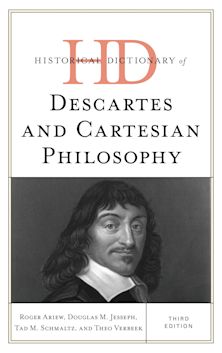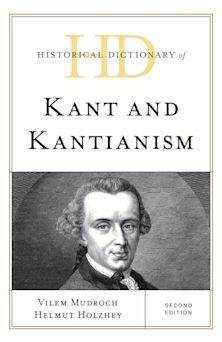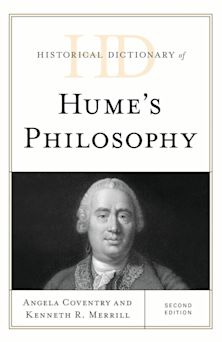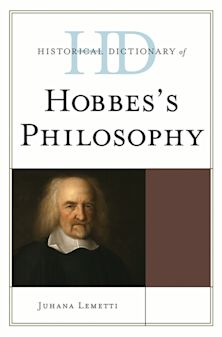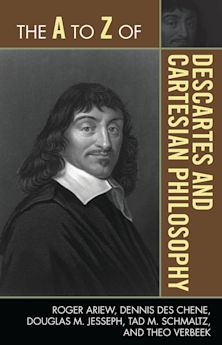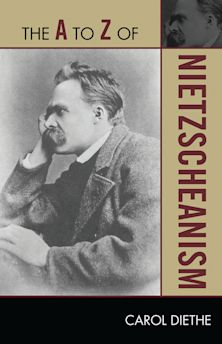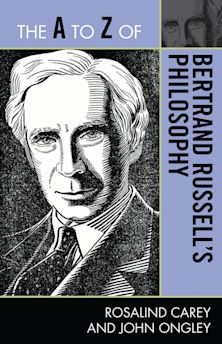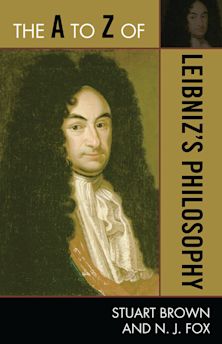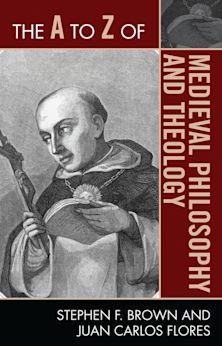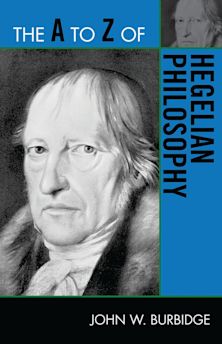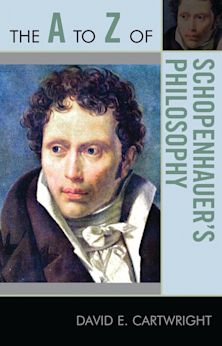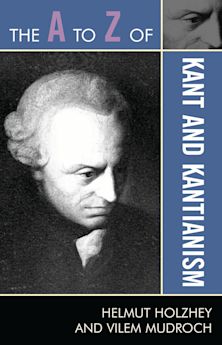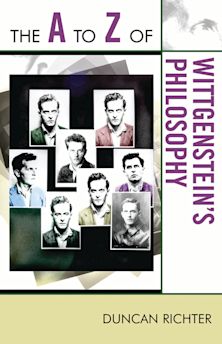- Home
- ACADEMIC
- Philosophy
- Reference
- Historical Dictionary of Heidegger's Philosophy
Historical Dictionary of Heidegger's Philosophy
Historical Dictionary of Heidegger's Philosophy
You must sign in to add this item to your wishlist. Please sign in or create an account
Description
By the time Martin Heidegger passed away on May 26th, 1976, he had become the most important and controversial philosopher of his age. While many of his former students had become important philosophers and thinkers in their own right, Heidegger also inspired countless others, like Jacques Derrida, Michel Foucault, and Jean-Paul Sartre.
The second edition of the Historical Dictionary of Heidegger's Philosophy is an historical perspective on the development of Heidegger's thought in all its nuances and facets. Schalow and Denker cast light on the historical influences that shaped the thinker and his time through a chronology; an introductory essay; a bibliography; appendixes that include German and Greek to English glossaries of terms and a complete listing of Heidegger's writings, lectures, courses, and seminars; and a cross-referenced dictionary section offering over 600 entries on concepts, people, works, and technical terms. This volume is an invaluable resource for student and scholar alike.
Product details
| Published | Aug 20 2010 |
|---|---|
| Format | Ebook (PDF) |
| Edition | 2nd |
| Extent | 1 |
| ISBN | 9798216207924 |
| Imprint | Scarecrow Press |
| Series | Historical Dictionaries of Religions, Philosophies, and Movements Series |
| Publisher | Bloomsbury Publishing |
About the contributors
Reviews
-
This is one of the most successful and useful reference books that can be encountered on a single philosopher.
[Review of the 1st Edition], Choice Reviews
-
Martin Heidegger (1889-1976) was arguably one of the greatest philosophers of the twentieth century; he has certainly been one of the most written and talked about, not only for the evolution of his philosophical thought and its influence but also for his dalliance with National Socialism in the 1930s and beyond. These factors alone would make him a fit subject for number 101 in the publisher's Historical Dictionaries of Religions, Philosophies, and Movements, a series that has also included Descartes, Nietzsche, Russell, and Heidegger's mentor, Edmund Husserl among its philosophical subjects. Like Husserl, he was a notoriously difficult philosopher. This, compounded by the uncertainties of translation, makes any volume that can help make sense of his work to English readers welcome. In this volume, author Schalow, research professor at the University of New Orleans, has significantly updated Alfred Denker's 2000 first edition. The main sections of the book are a chronology, introduction, 265-page dictionary section, 3 appendixes ("Heidegger's Writings, Lectures, Courses, and Seminars"; "German-English Glossary"; "Greek-English Glossary"), and 72-page bibliography. The bibliography contains 16 main divisions, including "Works in German," "Works in English," "Correspondence," "Bibliography and Reference," and "Background and Biography." Although no definitive key to unlocking Heidegger is likely to appear, this volume could be a useful companion during a reading of a Heidegger text. The chronology and introduction provide helpful context, though the dictionary entries often become bogged down in the obscurity and slipperiness of Heidegger's terms and their English equivalents. Recommended for colleges and universities where Heidegger is studied.
Booklist
-
Perhaps of greatest importance for scholars is the expanded bibliography, which is likely the most wide-ranging print version to date. Also notable is the comprehensive list of Heidegger's writings, lectures, and seminars, along with the handy German-to-English and Greek-to-English glossaries. Absolutely vital for philosophy collections.
Library Journal
-
Schalow (Univ. of New Orleans) and Denker (independent scholar) offer the second edition of a very valuable work for English-speaking Heidegger scholars. Its publication follows by ten years the first edition by Denker (CH, Dec'00, 38-1890) and marks the continuing growth of interest in Heidegger's philosophy. As a German thinker, Heidegger remains, despite his detractors, the most original philosophical thinker of the 20th century. The dictionary serves principally the English-reading scholar, although a helpful list of book-length writings by and about Heidegger in English, Italian, German, and French is included. In addition to the 266 pages of the dictionary itself, featuring 600 important terms and topics translated into English, the volume offers a 5-page "Chronology of Events and Writings in Heidegger's Life" and a 43-page prose introduction to his life and major writings. The bibliography (p. 355-427), however, is the most impressive and useful part of the volume. It contains a chronological list of all of Heidegger's writings, and books about Heidegger's philosophy. This is, in short, a necessary reference work for the English-speaking student of Heidegger's philosophy. Summing Up: Highly recommended.
Choice Reviews












